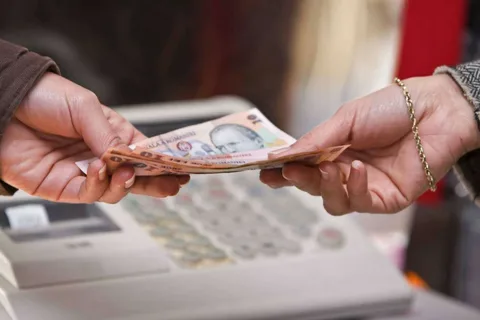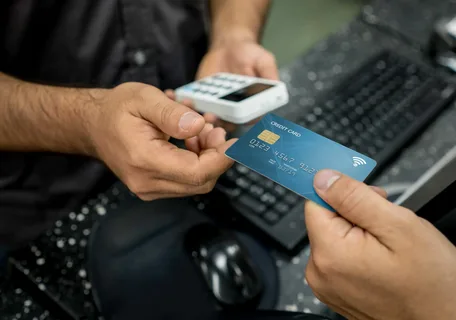If you’re an international reader wondering about the financial habits that make modern Asia tick, the story of Korea’s card gang may come as a bit of a shock. Picture a world where cashless transactions are the norm and payment alternatives reign supreme: But your average gizmo-buying consumer still comes up with a novel way to turn that digital credit back into tangible cash sometimes toying with the very limits of the law. It’s not simply a quirk of Korean culture; it’s a pragmatic response to technology, tricky regulations and a national craving for convenience and flexibility.
Targeting gambling, Credit Card Cashing Card Scam is a complicated and extremely controversial ecosystem that is relatively unknown to the West, where credit card limits are converted into cash. Mobile payment cash and high credit card adoption rates… in Korea mobile can often pay, but that is on the line with new dominant cash payments and #MeToo cardworld… Korea’s rapid acculturation of mobile payment cash and the #pestilential rate of credit card adoption make these both part of everyday life, and part of one a set of larger, very serious financial and regulatory issues.
For global analysts, and for anyone concerned about the future of digital finance, Korea’s experience is a warning and a window into how financial innovation often runs far ahead of supervision. In this piece, we’ll highlight the most common missteps and mistakes to avoid when employing credit card loans in this one-of-a-kind scenario based on counsel from kingcreditweb and share actionable insights that even stretch beyond the Korean payment terrain.
Explaining Credit Card Cashing Card Scam: The Korean Version of the Environment of Credit Card Cashing
What Is Credit Card Cashing Card Scam?
In essence, 신용카드 현금화 카드깡 is the method of providing cash from your credit card. It’s usually done by buying gift cards, prepaid cards or other relatively easily converted items using a credit card and then selling them for cash often with the help of third-party brokers. The word (pronounced “card-kang”) specifically describes illegal or semi-legal schemes that generate fake transactions to get cash. Some types of Credit card cashing may be legal, but the majority aren’t (especially those that revolve around other illegal activities).
How Has This Practice Become So Prevalent in Korea?
The emergence of this kind of Credit Card Cashing Card Scam is closely connected with the country’s rush to digitize, its strict lending regulations, and the national love for financial mobility. With more than 75% of Korean adults holding at least two credit cards and a smartphone penetration of 92% in 2025 (Statista), most consumers consider credit cards a necessity for making daily payments and accessing emergency funds.
How Does It Compare Globally?
Although such services are widely accessible across the globe, Korea’s system is exceptional for its intricacy, consumer accommodation, and lax regulation. In contrast, in the United States, cash advances are directly issued by the card issuer and are tightly regulated by authorities like the CFPB. In Korea, where there’s a fine line between legal credit card cashing and illegitimate card gang , people must be extra cautious.
Common Error No.1 – Overlooking the Statutory Differences in Credit Card Cashing Card Scam
The Gray Area Between Right and Wrong
Most newcomers fail to understand what makes carding tires legal! Iñurrieta emphasized that buying gift cards for personal use or resale is generally legal, but coordinating fake transactions or working with unregistered brokers to obtain fast cash amounts to illegality. In recent years, the FSC has tightened regulations and cracked down on over 8,000 cases of illegal card cashing schemes just last year.
Consequences of Overlooking Legal Risks
Punishments for fraudulent card rinsing can be harsh; they include criminal charges, large fines, and even jail time. Convictions for fraudulent credit card cashing have surged 17% year-over-year in 2025, according to recent data from the Supreme Prosecutors’ Office.
Why Audiences Anywhere Should Watch
As mobile payment cash pickup grows worldwide, comparable gray zones could emerge in other markets. Studying Korea’s regulatory landscape can help foreign regulators preempt similar risks.
Common Mistake No. 2 Underestimating the Cost and Hidden Fees
High Fees Erode Real Value
While credit card cashing scam provides liquidity, fees can be steep. Some transactions charge up to 30%, turning ₩1,000,000 into only ₩700,000. Legal services may also charge 5–15%. In 2025, the average fee for legal credit card cashing 신용카드 현금화 is 8.5%.
Impact on Credit Scores and Limits
Frequent use can push credit utilization beyond 30%, considered risky by credit bureaus. According to NICE (Korea’s major credit bureau), 63% of those who used card gang saw their credit score drop within six months.
Comparison with Alternatives
Better global options include personal loans, salary advances, or regulated mobile payment cash services. For example, digital microloans in Singapore average 12% annual interest significantly lower than Korea’s semi-formal cashing market (Monetary Authority of Singapore).
Common Error No. 3 – Trusting Unregulated and Anonymous Brokers
The Prevalence of Fraud
Quick-cash brokers often advertise through social media or chat apps. In 2025, more than 3,200 fraud cases related to unregulated credit card cashing scam were reported to the Korean National Police Agency.
Personal Data and Financial Security Threats
Dealing with unlicensed brokers raises the risk of identity theft and financial losses. Ultimately, cardholders pay the price both in immediate damages and long-term credit harm.
How to Identify Safe Services
Kingcreditweb advises using registered financial institutions. Look for FSC certification or check consumer reviews before proceeding with any credit card cashing scam service.
Common Mistake No. 4 – Not Understanding Regulatory Changes
Rapidly Evolving Rules
In 2025, Korea implemented new rules setting transaction limits and strengthening KYC (Know Your Customer) checks for mobile payment cash-outs.
The Cost of Non-Compliance
Uninformed users may face penalties or have their transactions canceled. In a kingcreditweb survey, half the respondents admitted they didn’t review the updated rules before cashing out.
Staying Informed
Experts suggest following FSC announcements and using kingcreditweb for real-time compliance updates and regulatory news.
Common Mistake #5 – Ignoring the Long-Term Financial Impact
Debt Accumulation
Using credit card cashing frequently leads to cycles of debt. Bank of Korea data shows 28% of people who used card cashing over three times annually applied for debt restructuring within two years.
Psychological Traps
Access to immediate cash can encourage impulsive spending and poor financial planning. Research shows that users relying on mobile payment cash are 60% more likely to regret their spending.
Comparison with International Trends
Countries like Japan and Germany have enforced tighter controls on credit card cashing and require financial education for vulnerable borrowers leading to lower delinquency rates.
Common Mistake No. 6 – Ignoring Legitimate Mobile Payment Cash-Out Options

The Use of Mobile Payment Cash for Legitimate Purposes
Leading e-wallets offer secure, transparent cash-out options. By 2025, over 40% of young Korean adults use mobile wallet withdrawals at least once a month.
Integration with Everyday Fintech
Fintech apps now offer automated repayment, spending trackers, and transaction alerts tools designed to help users avoid falling into credit card cashing scam traps.
The Role of kingcreditweb
Kingcreditweb partners with top mobile solutions to educate users on legal, cost-effective cash-out paths as Korea transitions from traditional credit systems to mobile-first finance.
Final Thoughts
As the world observes Korea’s advanced financial ecosystem, the evolution of creditcard cashing scam stands as both a cautionary tale and a valuable study in adaptation. While the urge to turn credit into instant cash is understandable, the risks legal, financial, and personal are real.
Understanding these dangers, avoiding costly missteps, and utilizing trusted platforms like kingcreditweb are key to operating safely in Korea’s high-tech but high-stakes financial landscape.
Stay informed. Play your cards right. Let kingcreditweb be your guide in the world of credit, cash, and mobile payments.





